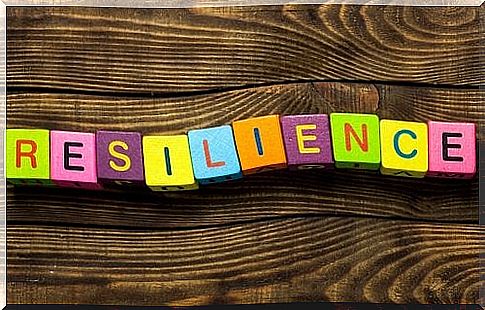What Makes Some People More Resilient Than Others?

Emotionally resilient people know how to deal with stress more effectively, and they recover more quickly from challenges and crises they may face. But what makes these emotionally strong people more effective when it comes to dealing with stress? The answer lies in what is called emotional resilience.
Emotional resilience is the ability to adapt to a very stressful situation or crisis. People who are more resilient are able to adapt to adversity. Resilient people can handle the stress caused by life changes, whether they are large or less noticeable.
In fact, it has been discovered that people who are better at overcoming short and less intense moments of tension usually also deal with more intense crises with greater ease. This means that resilience in everyday life develops your abilities to handle major problems and disasters.
To some extent, emotional and physical resilience is innate, but it is also a skill that can be developed. Of course, some people are less upset about changes and find it easier to adapt. This ability can be seen during childhood and tends to remain stable over the years.

Emotional resilience is also related to certain factors that are beyond our control, such as age, gender and exposure to trauma. But resilience can be developed with a little effort.
Resistance is not a fixed quality. Instead, there are different degrees that are associated with how someone can handle stress. However, resilient people share some traits, and the main ones are as follows:
- Emotional awareness: Resistant people are aware of their own feelings. They understand what they are feeling and why they are feeling it. They also understand other people’s feelings better because they are in closer contact with their inner life.
- Perseverance: Resistant people are driven by either internal or external motivation and action-oriented. They trust the process and do not give up.
- Internal control: They trust the control they have over their lives instead of believing that external powers control their existence. This trait is associated with less stress because people with a core of inner control and a realistic view of the world can be more proactive in managing their stressors. They are more oriented towards searching for and using solutions, as well as feeling a greater sense of control.
- Perspective: Resistant people are able to recognize their mistakes and learn from them. They see obstacles as challenges and let adversity make them stronger. They may also find some degree of logic in life’s many challenges instead of seeing themselves as victims.
- Support: Resilient people tend to be strong individuals who know the value of social support and can surround themselves with many family members and friends.

- Optimism: They are able to see things from a positive perspective and believe in their own strength. This can change the way they handle problems, preventing them from adopting a victim mentality.
- Sense of humor: Resistant people can recover emotionally from and even laugh at the difficulties of life. They do not see circumstances as a threat, but rather as a challenge. This changes the way the body responds to stress.
Emotional resilience can develop. We are actually faced with plenty of situations daily where we can practice it. All you need to do is show some interest in becoming more resilient and indulge in the process. It may not be easy or quick to achieve, but the following ideas will help you develop your resilience and become emotionally stronger.
- Be flexible both towards yourself and others. Resilient people can adjust their goals and find ways to adapt.
- Learn something from every single experience you have. People with resilience can always learn something new. They make every difficulty an opportunity to grow.
- Take action. Do not conform to thinking about what would be better or what you could do. Take a step forward. People with resilience work towards solving a problem instead of letting themselves be paralyzed by negativity.
- Nurture your relationships. This way, you will have people who support you when you are going through difficult times. And you will feel comfortable when it’s time to accept their help.
- Always have some form of outlet. Make sure you have the opportunity to express your feelings and leave the tensions aside.
- Have determination. Do things that make your life meaningful.
- Believe in yourself. Realize your own strengths and develop your skills.
- Cherish your good mood. Strive to be in a good mood, even in difficult times. Remember that laughter relieves stress. It will help you keep things under control and maintain a more optimistic attitude.








